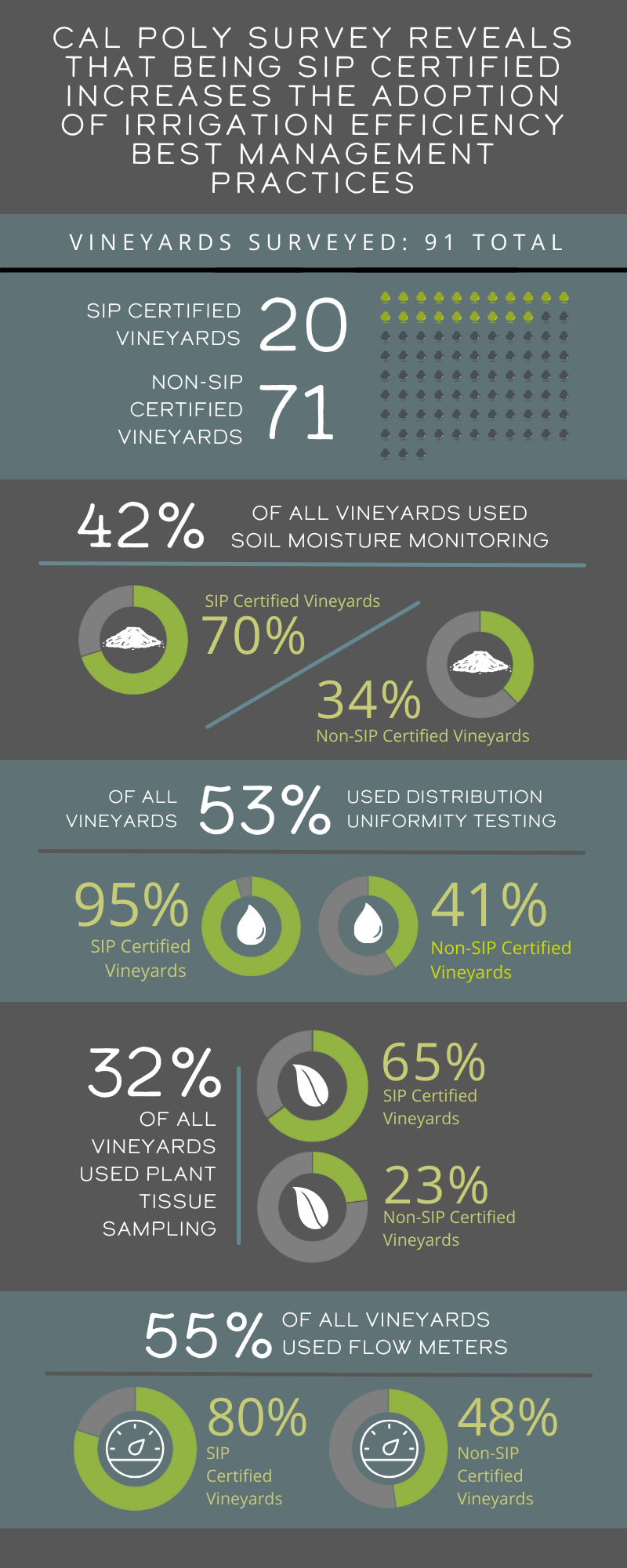Cal Poly Survey Reveals that Being SIP Certified Increases the Adoption of Irrigation Efficiency Best Management Practices
In 2021, Dustin Tran and Nicholas Lawrence Babin of California Polytechnical Institute conducted a survey of 91 vineyard managers in the Paso Robles American Viticultural Area. The aim of their study was to assess the level of, and barriers to, adopting six irrigation efficiency best management practices (BMP).
Below is a summary of the survey and its results, pulled from an excerpt of a recently published paper in the journal Current Research in Environmental Sustainability (click here to read the whole paper):
Groundwater depletion and water scarcity are significant global risks facing humanity. Improved irrigation efficiency is a key strategy for achieving sustainable management of groundwater resources.
In 2021, we surveyed vineyard managers in the Paso Robles (California) American Viticultural Area, assessing the level of, and barriers to, adoption of six irrigation efficiency best management practices (BMPs). BMP adoption was relatively low overall, with the use of flow meters most widespread (55%) and plant tissue sampling to schedule irrigation least prevalent (32%).
There was a clear relationship between BMP adoption and the vineyard and vineyard manager characteristics included in the study. Participation in SIP Certified and its related grower-to-grower network activities emerged as the single most important determinant of BMP adoption. This type of grower social network can be very effective at stimulating learning, engendering cooperation, and influencing BMP adoption.
Regional certification systems linked with grower sustainability networks are present in each of the major winegrape growing areas of California and provide a proven base from which to design and deliver effective outreach programming. They are especially relevant in an era where support for traditional modes of grower outreach like cooperative extension has faded. They may be a crucial locus for adaptation to future threats like climate change and emerging pest and disease threats, alongside more traditional outreach institutions like Resource Conservation Districts and cooperative extension."
Results of the survey
The following shows survey participants' use of irrigation efficiency BMPs:
Soil Moisture Monitoring
- All vineyards: 45%
- SIP Certified vineyards: 70%
- Non-Certified vineyards: 34%
Plant Tissue Sampling
- All vineyards: 32%
- SIP Certified vineyards: 65%
- Non-certified vineyards: 23%
Distribution Uniformity Testing
- All vineyards: 53%
- SIP Certified vineyards: 95%
- Non-certified vineyards: 41%
Flow Meter Adoption
- All vineyards: 55%
- SIP Certified vineyards: 80%
- Non-certified vineyards: 48%


